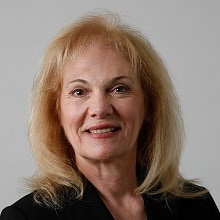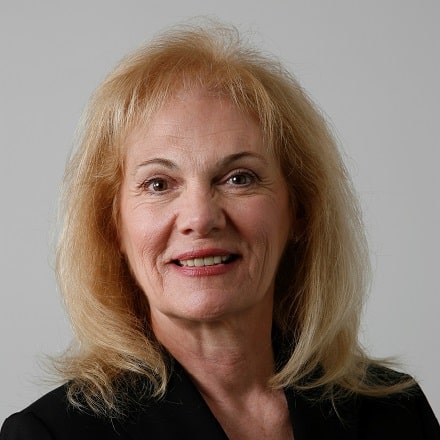Inside Angle
From 3M Health Information Systems
Hope in the time of COVID-19
My blog posts discuss healthcare compliance issues and normally I focus on CMS, OIG, audits, coding and rules. But at this unusual time, I’m finding it challenging to focus on my usual subjects due to the overwhelming amount of information coming my way regarding the COVID-19 pandemic.
I am reminded of a book I read years ago called Love in the Time of Cholera which I found fascinating. Published in 1985, it was Gabriel Garcia Marquez‘s first book after winning the Nobel Prize for Literature in 1982. The book tells the story of three protagonists and their struggle with the indignity of aging and a fear of death due to cholera, choleric symptoms and cholera epidemics. It’s a story of love and hope.
I live in Bergen County, NJ a close neighbor to New York City. NYC is now a focal point of the epidemic as are communities close to my own. Schools are closed, markets are purged of cleaning supplies and food, all non-essential businesses have been told to shut down, communities have been quarantined. Everyone is frightened, including me. But since there is little I can do other than follow mandate, I’ve decided to focus on better news. I realize it’s impossible early on to post the number of mild cases or report the number of folks who survived when the world is focused on reducing the spread of disease and saving lives. I believe soon there will be more data to support hope.
I’ve found some information that might be helpful, including a bit of good news I’d like to share.
- On March 16, 2020, Moderna Inc announced that “the first participant has been dosed in the Phase 1 study of the company’s mRNA vaccine (mRNA-1273) against SARS-CoV-2. The company is actively preparing for a potential Phase 2 study under its own IND to build on data from the ongoing Phase 1 study being conducted by the National Institutes of Health (NIH). In order to continue to make progress on this potential vaccine during the ongoing global public health emergency, Moderna intends to work with the FDA and other government and non-government organizations to be ready for a Phase 2 and any subsequent trials, which are anticipated to include a larger number of subjects and which will seek to generate additional safety and immunogenicity data. Manufacture of the mRNA-1273 material for the potential Phase 2 trial, which could begin in a few months, is underway. Moderna continues to prepare for rapid acceleration of its manufacturing capabilities that could allow for the future manufacture of millions of doses should mRNA-1273 prove to be safe and effective.”
- The Johns Hopkins University of Medicine online tool for tracking global cases by the Center for Systems Science and Engineering. You can stay up to date by viewing the map. There is some good news: more than 100,000 people are listed as recovered.
- The Warton School at the University of Pennsylvania released an article titled “Coronavirus: How Emotional Contagion Exacts a Toll” by Professor Sigal Barsade. Specifically: “The good news is that you can be inoculated, to a certain degree, against emotional contagion,” Barsade said. She outlined three steps to help prevent the spread of unchecked emotions:
-
- Be Aware – An understanding that emotional contagion exists is the first step in managing it. Awareness makes the process less automatic, which helps in resisting it. Barsade recommends putting feelings on pause for some self-examination. “If you’re feeling incredibly anxious or fearful, ask yourself: Do you really have a reason to feel this way? Or is it your friends, or your social media feeds, or news from non-expert sources that is leading you to feel that way?”
- Reduce Feedback – The big news of the day, whether it’s the coronavirus or the economy, is a natural topic of conversation for friends, family, co-workers and strangers alike. But Barsade suggests that individuals limit the amount of feedback they let into their lives, especially from non-expert sources. That advice is critical when the news is short on facts and long on conjecture. “There’s not a whole lot to say about [coronavirus] at this point, so most of what’s said about it involves fears or stories that are interesting, which are mainly negative,” she said. “I’ve been hearing from people all over the country where their co-workers are talking about, ‘Well, we shouldn’t let anybody in who comes from a state that has had the coronavirus.’ Or complaining that they can’t buy Clorox wipes. Or how they woke up in the middle of the night and had a little bit of a sore throat and took their [temperature] immediately because they were afraid of it. What that does is, again, just feed into the emotional contagion.”
- Don’t Ignore the Problem; be Purposeful – Barsade emphasized that limiting feedback doesn’t mean that “you should put your head in the sand” and ignore what is happening. On the contrary, she advises people to stay alert and purposeful in both their words and actions. “But be judicious about the conversation that you’re taking in,” she said. “Try to turn to health care and health policy experts and behavioral science experts, and even go to multiple experts. When it comes to action, Barsade said take the necessary precautions, don’t do more than is needed—and don’t panic.”
- Be Aware – An understanding that emotional contagion exists is the first step in managing it. Awareness makes the process less automatic, which helps in resisting it. Barsade recommends putting feelings on pause for some self-examination. “If you’re feeling incredibly anxious or fearful, ask yourself: Do you really have a reason to feel this way? Or is it your friends, or your social media feeds, or news from non-expert sources that is leading you to feel that way?”
- A resource for coping is the website Ten Percent. They offer a free “Coronavirus Sanity Guide” that includes meditations, podcasts, blogs and talks “that will help you build resilience and find some calm amidst the chaos.” The tools help reduce anxiety, fear, confusion, panic and promote relaxation, self-care and courage through fear. If you or your family have never tired meditation, perhaps now is the time to learn together.
Remember what Franklin D. Roosevelt said in his inaugural speech during WWII; “So, first of all let me assert my firm belief that the only thing we have to fear is…fear itself—nameless, unreasoning, unjustified terror which paralyzes needed efforts to convert retreat into advance.” By next month I hope to be back talking about compliance, but for now I wish everyone good luck and good health.
Barbara Aubry is a senior regulatory analyst with 3M Health Information Systems.
During a pandemic, healthcare information is gathered, studied, and published rapidly by scientists, epidemiologists and public health experts without the usual processes of review. Our understanding is rapidly evolving and what we understand today will change over time. Definitive studies will be published long after the fact. 3M Inside Angle bloggers share our thoughts and expertise based on currently available information.


